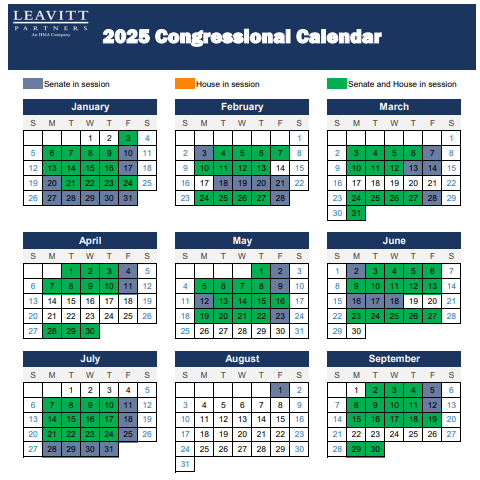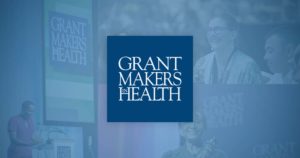2025 Call for Grantmakers In Health Board Nominations
Grantmakers In Health, an educational organization serving staff, executives, and trustees of foundations and corporate giving programs working in the health field, is seeking nominations for its board of directors for terms beginning in March 2026.
Policy Resource: 2025 Congressional Calendar
Developed in collaboration with Leavitt Partners, this calendar tracks when each house of congress will be in session in 2025.
Policy Resource: Overview of Congressional Staff and Member Outreach
Developed in collaboration with Leavitt Partners, this resource provides a detailed overview of how congressional offices, committees, and leadership are staffed. In addition, it provides recommended best practices for meeting with Members of Congress and their staff.
It Takes Many Villages to Create a Public Health Improvement Plan
Public health has gained attention in Colorado over the last four years as a result of a partnership that includes health foundations, the Colorado School of Public Health, the state legislature, and state and local health agencies.
Paid Sick Days: A Health Policy for Everyone
When the H1N1 pandemic broke out, the Centers for Disease Control and Prevention urged sick people to stay home. Unfortunately, for many Americans, staying home meant losing income, losing a good shift, or worse, losing their job.
2010 Inaugural Class of the Terrance Keenan Institute Fellows Announced
Grantmakers In Health is pleased to announce that the following individuals have been selected to participate in the inaugural Terrance Keenan Institute for Emerging Leaders in Health Philanthropy.
The State of State Budgets
At a recent meeting of state health policymakers, California team members were asked to compare their budget problems with the Titanic’s sinking and determine which health initiatives were essential and worthy of being loaded into a lifeboat. One member quipped, “We’re just trying to figure out whom to EAT in the lifeboat!”
Philanthropy’s Response to Haiti
Learn what grantmakers and other organizations are doing in response to the disaster in Haiti.
Integrative Medicine Offers Opportunity for Shared Learning and Collaboration
There is growing interest in the field known as integrative medicine. A 2007 national survey by the Centers for Disease Control and Prevention found that 38.3 percent of all adults, up from 36 percent in 2002, accessed some form of complementary and alternative medicine through visits to acupuncturists, chiropractors, massage therapists, among others.



